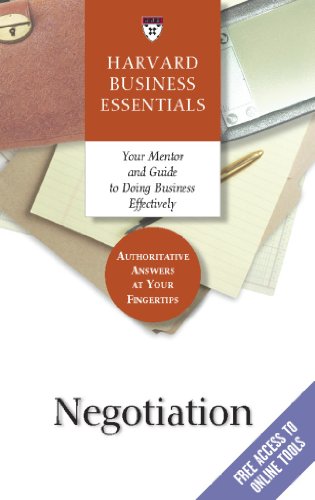Category: Negotiation
(69 von 100)
Why: I need to negotiate with makers on price, MOQ, deposit, exclusivity, etc.
Goal: learn what are barriers to the agreement.
Table of Contents
Action: Speak Softly but Carry a BIG Stick.
3 Key Concepts
- To negotiate is to seek mutual agreement through dialogue.
- It is a game of information, get them to tell you everything.
- Always try to develop your BATNA, get a bigger stick.
Summary
How to carry a big stick?
First, know your Best Alternative To Negotiated Agreement. The closer your BATNA to the wanted deal, the stronger your position becomes. Basically, you can say, “Fuck off!” Learn more about BATNA in Getting to Yes by Roger Fisher and William L. Ury.
If you start the dialogue in a condition that you can always leave, you are strong.
Speak softly but carry a big stick.
Theodore Roosevelt
This book is one of the business books in the Harvard Business Essentials series. What a complete package. You can really benefit just by reading a chapter a day.

What is Negotiation for?
Negotiation is how people deal with their differences … To negotiate is to seek mutual agreement through dialogue.
Negotiatus -Latin- means “to carry on business.”
Negocios -Spanish- means “business.”
Mainly, you will encounter 2 types of negotiations.
- Distributive: parties compete over the distribution of a fixed sum of value.
- Integrative: parties integrate their interests t achieve maximum benefits.
It is common that a negotiation is a mix of both as it evolves through phases and parties.
Barriers to Agreement
Lack of Trust
- Emphasize that the deal is predicated on truthful representation of the situation.
- Require them to send a back-up proof.
- Structure an agreement that benefits contingent on current compliance.
Negotiator’s Dilemma
You are weak and don’t want to reveal the information about it. But on the other hand, other parties might also be weak and need your help. This is a dilemma as both parties lack information about each other and scare to give it out.
The solution is cautious, mutual, and incremental information sharing.
“Now, tell us something about your interests.”
Deal with Spoilers
Spoilers are people who prefer “no deal.” They don’t even want to hear about it; they might go as far as to convince others in their power to deny your deal. So how to deal with these people?
- Always try to answer “Where and how will this change create pain and loss in the organization?”
- Identify people who have something to lose, and try to anticipate their responses.
- Emphasize on future benefits to potential resisters.
To sum up, there are many barriers to an agreement. Therefore, you have to use a tactic accordingly to maximize the benefit for both parties.
Goal check: I learned about barriers and how to deal with them.
Wasu’s Review
( 4.0 / 5.0 )
Get this book on Amazon here!
Bonus: Harvard Business Essentials related online material.

